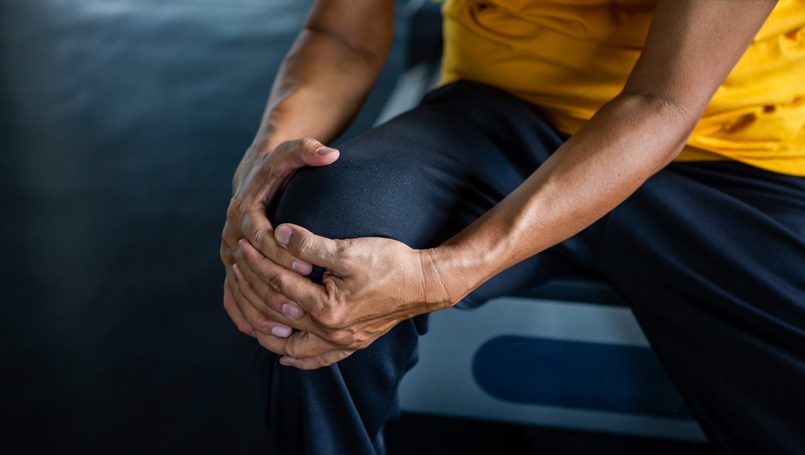If you experience constant knee pain, it is possible that you are unable to partake in activities you enjoy. While undergoing knee replacement surgery can alleviate joint pain, you may feel that you are either too young or unprepared for such a procedure.
Fortunately, there are various knee pain treatments without surgery to alleviate knee pain, enhance mobility, and enhance your overall quality of life. At Medica Stem Cells Clinic, our team of medical professionals delves into six effective knee pain treatments without surgery for treating chronic knee pain.
Discover effective non-surgical approaches for managing knee pain. Explore alternatives to surgery, from therapies to lifestyle adjustments, in your journey towards better knee health.
Don’t let knee pain limit your life. Learn about a range of non-surgical options for knee pain management, including physical therapy, medication, lifestyle changes, and more. Find relief and get back to doing what you love
6 Types of Knee Pain Treatments without Surgery
1. Modify Your Activity
One suggestion from our medical experts for managing knee pain is to make adjustments to your physical activities. While it is important to remain active and continue exercising when experiencing knee pain, avoiding certain activities can help alleviate discomfort.
For example, opting for low-impact exercises such as cycling or using an elliptical machine is preferable to walking or running, as these activities can put a strain on the knee joints and worsen the pain.
Maintaining an active lifestyle can also prevent weight gain or aid in weight loss, which can subsequently reduce knee pain. Making modifications to your activities, such as avoiding excessive stair climbing or squatting, can contribute to a decrease in knee pain.
2. Knee Braces
Braces can provide relief for individuals experiencing joint pain. Although arthritis typically does not lead to knee instability, the inflammation resulting from arthritis or other knee injuries may cause a sensation of the knee giving out or being unstable.
Wearing a compression sleeve or brace can help alleviate this feeling by applying pressure to the knee. Additionally, larger braces can offer increased support. An offloading brace can redistribute weight to the unaffected area of the knee, reducing discomfort caused by arthritis.
3. Medications
NSAIDs, also known as non-steroidal anti-inflammatory drugs, help your body to decrease arthritis-related inflammation. For optimal results, it is advisable to take these medications regularly, typically on a daily basis, as arthritis or knee injury-induced inflammation occurs daily. Consequently, it is imperative to maintain a constant presence of these pills in your system to maximize their efficacy.
To avoid potential stomach discomfort, it is advisable to consume these pills with food. It is worth noting that individuals with reduced kidney function or those taking blood thinners should refrain from using NSAIDs. If you are using these medications for an extended period, it is essential to inform your healthcare provider for proper monitoring.
4. Physical Therapy/Exercises
Physical therapy is an alternative to surgery for alleviating knee pain. Engaging in weight-bearing activities like cycling, walking, and using an elliptical machine is highly recommended to promote proper cartilage health and strengthen the muscles surrounding the knees and legs.
Incorporating exercises that target the legs and core muscles, such as pushups and straight leg raises, can effectively stabilize the joints and decrease knee pain. It is important to note that exercising does not exacerbate arthritis and, in fact, it may alleviate pain and preserve existing cartilage.
5. Steroid or cortisone shots
Steroid injections can effectively alleviate knee pain caused by arthritis by reducing inflammation, which is the underlying cause of discomfort. These injections, administered every three months, provide quick relief, often noticeable before leaving the medical facility.
The process of administering a steroid shot is brief, usually taking only a few seconds. The injection employs a thin needle, causing less pain than commonly anticipated.
6. Regenerative Treatment
Regenerative treatment differs from other treatment methods in that it addresses the root cause of the issue instead of merely alleviating symptoms.
By utilizing the patient’s own cells, there is no risk of rejection complications. Additionally, this form of treatment involves a quick recovery period and can be performed on an outpatient basis.
The field of regenerative treatment encompasses various techniques, including PRP injections, stem cell therapy, and prolotherapy.
· PRP therapy
PRP therapy involves drawing the patient’s blood and using a specialized machine called a centrifuge to separate the platelet-rich plasma cells. These cells are then injected into the patient’s knee on the same day.
· Stem cell therapy
Similarly, stem cell therapy can utilize blood gathered from the patient’s bone marrow. Although it may not directly regenerate cartilage, studies have shown that it can help alleviate pain. The frequency of stem cell therapy can be tailored to the patient’s preferences but should typically be spaced at least 3-6 months apart.
· Prolotherapy
Prolotherapy offers a non-invasive alternative to traditional surgical interventions for knee pain. This treatment involves injecting a solution, usually dextrose, into the knee and may require multiple sessions over an extended period. Prolotherapy has been proven to be safe and effective for managing chronic knee arthritis pain, and its popularity is steadily increasing.
It is important to note that insurance does not cover stem cell therapy, prolotherapy, or PRP injections. However, there is no lifetime limit on the number of joint injections one can receive as long as the appropriate time is allowed between each session.
Final Thoughts
At Medica Stem Cell Clinic, our medical experts conduct a thorough examination and evaluate your overall health before performing regenerative treatment. If traditional knee pain treatments without surgery fail to provide relief, we discuss regenerative treatment options to find the best fit for your symptoms. Depending on the severity of your condition, we may recommend combining regenerative treatment with physical therapy.
Neglecting knee pain can lead to further harm, so it’s important to visit Medica Stem Cells Clinic for a diagnosis and appropriate knee pain treatment without surgery. In most cases, surgery is not necessary, and our experts can help improve your comfort and quality of life.
Don’t hesitate to consult an expert if you’ve been experiencing knee pain; they can assist in making your life more comfortable and pain-free.



